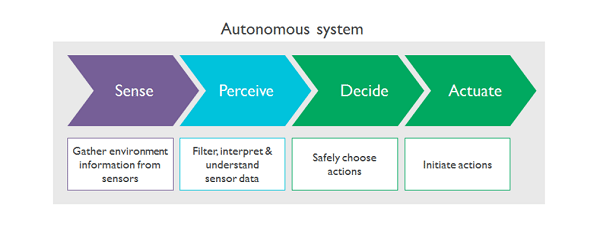ARM launches IoT processor for safety-critical devices
British microprocessor designer, ARM has launched a new processor for driverless cars called Cortex-R52, designed to address functional safety in systems with critical safety needs, such as autonomous driving or surgical automation.
ARM claims that the processor is designed to keep the most critical software tasks separate, in order to completely isolate them that allows the hardware to be managed by a software hypervisor. By enabling the separation of software, the Cortex-R52 aims to decrease the amount of code that must be safety-certified, hence speeding up development as software integration, maintenance and validation becomes easier.
“The Cortex-R52 is the first processor built on the ARMv8-R architecture and it was designed from the ground up to address functional safety,” said James McNiven, General Manager for CPU and media processing groups, ARM.

“We are helping partners to meet particular market opportunities, especially in fully autonomous vehicles and robotics systems where specific functionality is required for safety-critical tasks. By documenting the strict development process, fault modelling and supporting software isolation, ARM is enabling a faster route to market for partners addressing these applications.”Suited ideally for safety-critical systems, the processor is also designed to deal with increased software complexity while delivering the determinism and fast context switching that real-time systems demand. This would enable it to ‘sense’, ‘perceive’, ‘decide’ and ‘actuate’ in an emergency situation, helping it interpret more about the environment in which the system is operating.

“Systematic errors are typically as a result of software or design errors. Protection against these is provided by the use of appropriate processes and procedures at design. Cortex-R52 has been developed from the ground up within a robust process to help protect it from these systematic issues. A comprehensive safety pack is available to SoC partners which simplifies and reduces the effort needed in certifying the end system,” read the ARM blogpost.The processor that has been under development for between 3 and 5 years, has been licensed to STMicroelectronics in its first deal to help it create highly integrated Systems on a Chip (SoCs) for the automotive market.
